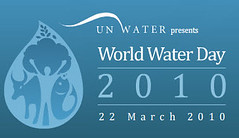Easter Day is just around the corner. Dear teachers, have you prepared well for students’ questions about Easter Day? Though it is a commonly-known religious day, students still need to know more details. How can you know whether you have mastered the knowledge of Easter Day? What way will you choose to teach and share the Easter Day information with children? Ok, this Easter Day’s quiz will help you.
Easter Day Quiz
Question 1:
On what street in New York does the city’s famous Easter parade take place?
A. Broadway
B. 42nd Street
C. Wall Street
D. 5th Avenue
Question 2:
Who was the last monarch to wash the feet of the poor on Maundy Thursday as an act of humility in remembrance of Jesus washing the disciples’ feet?
A. Victoria
B. James II
C. George III
D. George VI
Question 3:
In France how are Easter eggs thought to be delivered to children on Easter Sunday?
A. By the Easter goose
B. By a church bell that scatters eggs as it rings out on Sunday morning
C. By the Easter bunny
D. By the Birgin Mary who delivers them to the children while they sleep
Question 4:
Who was the first to speak to Jesus after he had risen from the dead/
A. God
B. Mary, his mother
C. Judas Iscariot
D. Mary Magdalene
( Do you know the answers? Come on! ^_^ )

Question 5:
What are the English and German names for Easter or Ostern derived from?
A. The Passover ritual of Seder
B. The ancient name for the month of April
C. The German word for Austria, traditionally believed to be where Easter eggs were found
D. The Latin for word for eggs
Question 6:
What does the Easter Triduum refer to?
A. The Sunday after Easter Sunday, the conclusion of the Easter week
B. The ascension of Jesus to heaven and the completion fo the Holy trinity
C. The last three days before Easter Sunday
D. The meal eaten by the disciples following Jesus’ crucifixion
Question 7:
The Good Friday agreement, signed on Good Friday 1998, is also known as what?
A. The Belfast agreement
B. The Democratic Unionist agreement
C. The Dublin agreement
D. The Northern Ireland agreement
Question 8:
The term Maundy, describing the Thursday that commemorates the last supper and celebrated the day before Good Friday, is derived from the Latin word mandatum, meaning what?
A. Final
B. Commandment
C. Mandate
D. Disciple
Question 9:
What way will you choose to teach your students? If e-Learning method is used, what will be the result?
The quiz is finished, while is it hard to do the quiz and make a judgment? Please be patient. Let's try another version of this Easter Day quiz.
Is this one much more engaging? I didn’t show the Easter Day quiz made with Flash quiz maker first; however, don’t regard it as teasing on you. You know, it is April Fool’s season. ^_^ Check out the score you have got. Oh, there is an open question – the last question. What is the key? I think you should have already known the answer based on your experience in doing the quiz, and your students possibly have the same feeling.
Don’t feel upset if you failed in the quiz this time. There is still enough time for you to learn more about Easter Day. The following are some materials about Easter Day for you:
http://en.wikipedia.org/wiki/Easter
http://www.holidays.net/easter/index.htm
Children always like learning in interesting ways. Dear teachers, why not make full use of these techs in your class? E-learning has become the hot topic. If the e-Learning technology can be well adopted in teaching, students and also you must get great benefits from them.
Happy April Fool’s Day and Easter Day!
Read more ...








